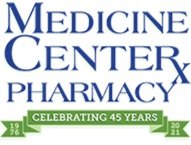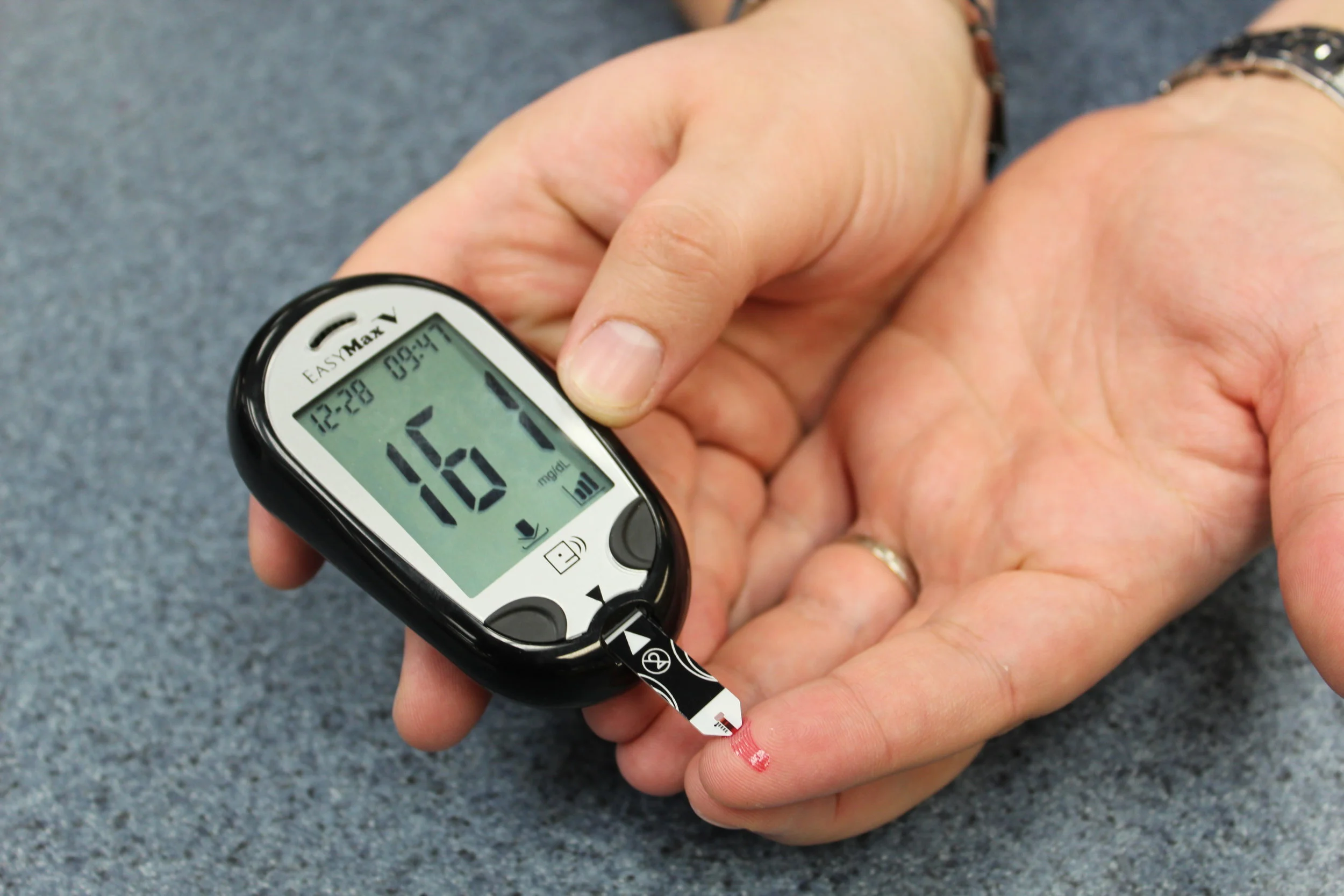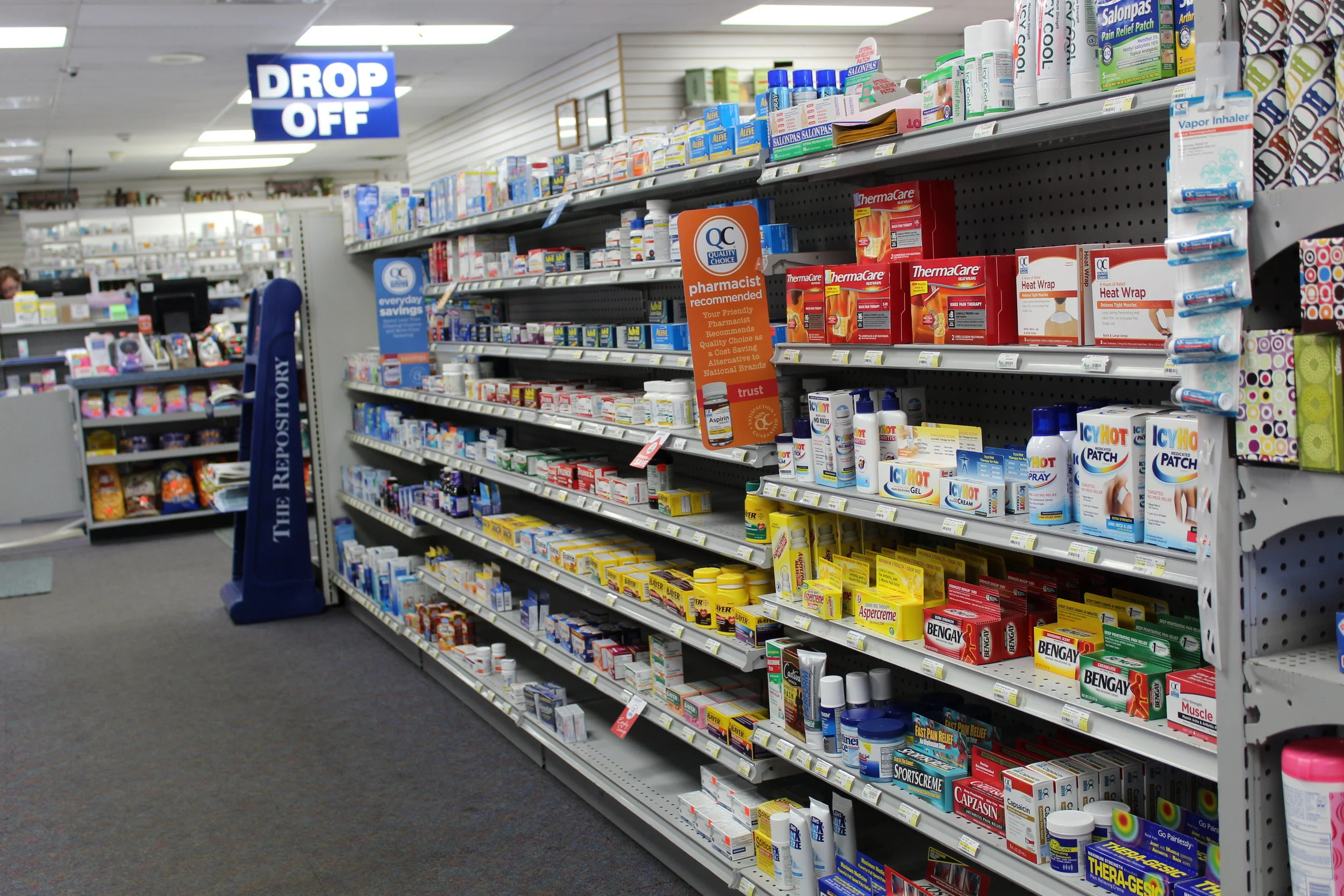Want to learn more? Listen to our Health Matters Episode
Are you 50? Time to get tested and prevent colorectal cancer When she was 55 years old, Valerie B. made a promise to a total stranger. It may have saved her life.
“I was sitting in the doctor’s office for a mammogram,” the Atlanta woman says. “A lady there said she recently learned she had colon cancer. I knew nothing about it; nobody had ever told me to go get a colon test done. That woman in the doctor’s office urged me to get tested. I promised her I would. And I did.”
She made an appointment right away. During the test, Valerie’s doctor found and removed six polyps (abnormal growths) in her colon. Three were precancerous, meaning there was a good chance they could have turned into cancer if they had not been removed. “The doctor was really glad I was there,” she says. “He said ‘Why did you wait so long?’”
Screening is recommended for men and women beginning at age 50 and continuing until age 75. Among men and women combined, colorectal cancer is the second leading cancer killer in the United States. But it doesn’t have to be. Screening helps prevent the disease by finding polyps, so they can be removed before they turn into cancer. Polyps don’t always cause symptoms, so you may not know you have them. That is why getting a screening test is so important.
For 52-year-old Randy Talley, the path to screening was different, but the results were similar. His doctor strongly recommended that he get checked for colorectal cancer when he was 50. Polyps ran in his family—his mother had them— and both Randy and his mother had irritable bowel syndrome, a condition that can raise a person’s risk of getting colorectal cancer. Plus, he was at the age when screening is recommended.
It turned out that Randy had five polyps, all in an early, noncancerous stage. They were removed. “This testing is recommended for a good reason,” the Washington, DC, resident says. “You either experience a little discomfort with the test now, or you could face something a lot worse later in life, if you get colon cancer. So if you’re 50 or older, my advice is to get screened now. I am completely glad I got screened.”
There are several screening tests: colonoscopy, high-sensitivity fecal occult blood testing, and sigmoidoscopy. If you’re 50 or older, talk to your doctor about which is right for you.
Valerie, now 60, is a cheerleader for getting screened. “After my colonoscopy, all I did that year was talk to people and tell my story. I found that five family members over 50 weren’t tested. I begged them to go, and they all went.”
Most insurance plans and Medicare cover screening without a deductible or co-pay.
To learn more about colorectal cancer and screening, visit the Centers for Disease Control and Prevention’s (CDC’s) Web site for Screen for Life: National Colorectal Cancer Action Campaign at www.cdc.gov/ScreenForLife
It seems like there is a pharmacy on every corner; either free-standing or inside a grocery store or big box chain. Believe it or not, there are roughly 67,000 pharmacies in the United States.
Pharmacies continue to take a bigger role in healthcare. Overall that is great news for you because the pharmacy isn’t just about filling pill bottles. Pharmacies continue to offer more comprehensive services – everything from making sure that the medicine you take is right for you for preventative care and health monitoring.
These services make it more important than ever to have the right pharmacy and to make a change if you aren’t satisfied with the role your pharmacy is playing in your health care. Here are some of the top 5 reasons to consider switching pharmacies:
- Limited Prescription Packaging – does your pharmacy only offer traditional bottles? Do you ever forget to take your medication? The Medicine Center Pharmacy offers several choices. Bottles, blister packs or individual packets are offered so you can tell at a glance if a dose has been taken or missed.
- Waiting for Prescriptions – Keeping customers waiting is actually part of the marketing strategy at some stores! The Medicine Center Pharmacy offers prompt 15 minute prescription processing and voice or text alerts to let you know when your prescription is ready.
- No Delivery – The Medicine Center Pharmacy offers free prescription delivery within certain geographic limits.
- Lack of Specialized Dosing or Compounding – The Medicine Center is an accredited compounding pharmacy able to make specialized doses or products.
- No Preventative Care – The Medicine Center Pharmacy offers immunizations, low cost blood screenings for blood glucose, thyroid, cholesterol and A1C tests on a regular basis.
Switching pharmacies is easy! Let your pharmacist handle the transfers and you’ll be on the road to better health with the convenience of the Medicine Center Pharmacy.
February is Heart Health Month. During this month, the Medicine Center Pharmacy encourages our patients and our community to take practical steps to heart health. A few suggestions include:
- Eating Healthier
- Increasing Physical Activity
- Managing Stress
If you have questions about heart health, we encourage you to talk to your doctor and pharmacist. The American Heart Association lists many ideas on how to live healthier - check out the link below.
Heart disease is the leading cause of death for both men and women in the United States. The good news? It is also one of the most preventable. Making heart-healthy choices, knowing your family health history and the risk factors for heart disease, having regular check-ups and working with your physician to manage your health are all integral aspects of saving lives from this often silent killer. FEBRUARY IS HEART HEALTH MONTH. Make a difference in your community by spreading the word about strategies for preventing heart disease and encouraging those around you to have their hearts check and commit to heart-healthy lives.
from http://www.theheartfoundation.org/heart-disease-facts/heart-awareness-month/
The continual process of managing diabetes can be cumbersome, time consuming, expensive and frustrating. Research and technology has improved the tools to be less invasive and more convenient and has also created less expensive items options. Meters and strips are available from many manufacturers, all using technology that accurately measure your blood sugar. Many people stay with one manufacturer and pay whatever price this company charges for their supplies. Some find less expensive options by talking with their doctor or pharmacist.
It is important to be diligent and consistent in monitoring and treating diabetes. We encourage everyone to ask there pharmacist how they can make it easier for you to continue managing your diabetes by finding more convenient, less expensive or alternative methods to monitor the condition.
At our pharmacies, we offer EasyMax meters and test strips. We have found these to be an excellent value, especially in the long term. Strips are a daily expense that can quickly add up. EasyMax strips cost only 16 cents each, saving you money everytime you choose EasyMax over more expensive compititors.
Sources:
http://www.diabetes.org/advocacy/news-events/cost-of-diabetes.html
http://www.diabetes.org/living-with-diabetes/treatment-and-care/blood-glucose-control/checking-your-blood-glucose.html
http://www.diabetesforecast.org/2012/jul/anatomy-of-a-test-strip.html
Are you or someone you love diabetic?
Stop by one of our Diabetes events to see how we can improve your life!
January 24: New Philadelphia
Ready or not, winter is right around the corner! The winter winds don't just blow in snow... for many people, winter brings about a wide range of health concerns that normally would not trouble us in warmer weather. Luckily, we aren't totally at the mercy of Mother Nature. Keep reading for some supplements that can help keep you happy and healthy until the spring sun shines.
(Note: Even though supplements come from a “natural” source, they can still interact with prescription medications and have effects on your health. Always consult with your doctor before starting any new supplements.)
Vitamin D
Vitamin D is a vitamin that is essential to our functioning, but unlike other vitamins, is not naturally present in many foods. Vitamin D is sometimes known as “the sunshine vitamin” because our body produces its own vitamin D when the sun hits our skin. When the days get shorter and the winter winds are blowing, we don't get as much sun as we do in the summer months. Making sure you get the proper amount of vitamin D helps keep your bones healthy and strong, as well as possibly help to keep your nervous, immune, and cardiovascular systems functioning.
Vitamin C
Vitamin C seems to be the go-to supplement to ward off winter colds and other bugs. The citrus fruits such as oranges and grapefruit where we get much of our dietary vitamin C can be in short supply in the winter, putting you at risk for deficiency. Low vitamin C levels can weaken your immune system and make you susceptible to a wide array of illnesses. Some evidence suggests that taking higher doses of vitamin C may slightly reduce the duration of a cold, but this is still up for debate. You'll get the most benefit out of vitamin C if you make sure you get enough of it regularly instead of taking a mega-dose after you're already sick.
Glucosamine and Chondroitin
Anyone with joint pain knows that the chill and dampness of winter can settle in and wreak havoc on aching joints. Glucosamine and chondroitin are natural components of your joint cartilage. Taking these as a supplement may help relieve joint pain from arthritis. Don't expect a miracle cure, though; benefits from these supplements seem to be modest and can take a few weeks to work.
Vitamin E
The harsh winter weather can pack quite a punch against your skin; decreased humidity, drinking less water than in the summer, and poorer circulation due to the cold can leave your skin dry and itchy. Vitamin E may help keep your skin healthy. Luckily, many foods we eat are rich in vitamin E and it's unlikely that you would become deficient. Instead of taking a vitamin E supplement, you can try putting vitamin E oil on your suffering skin. The oil, which can be found either by itself or in many lotions, may be a helpful moisturizer as well as provide your skin with needed antioxidants to protect against damage.
Omega-3 Fatty Acids
Omega-3 may be a jack of all trades when it comes to helping ease your winter woes. This fatty acid commonly found in fish oil may help promote circulation; this not only helps keep your fingers and toes warm, but may help keep your skin healthy and hydrated as well. There is also some evidence to suggest that omega-3 may help promote joint health, an added benefit for aches and pains aggravated by the cold.
You can find these supplements and many more at your local Medicine Center Pharmacy. Stop on in today to talk with the pharmacist and start living well.























